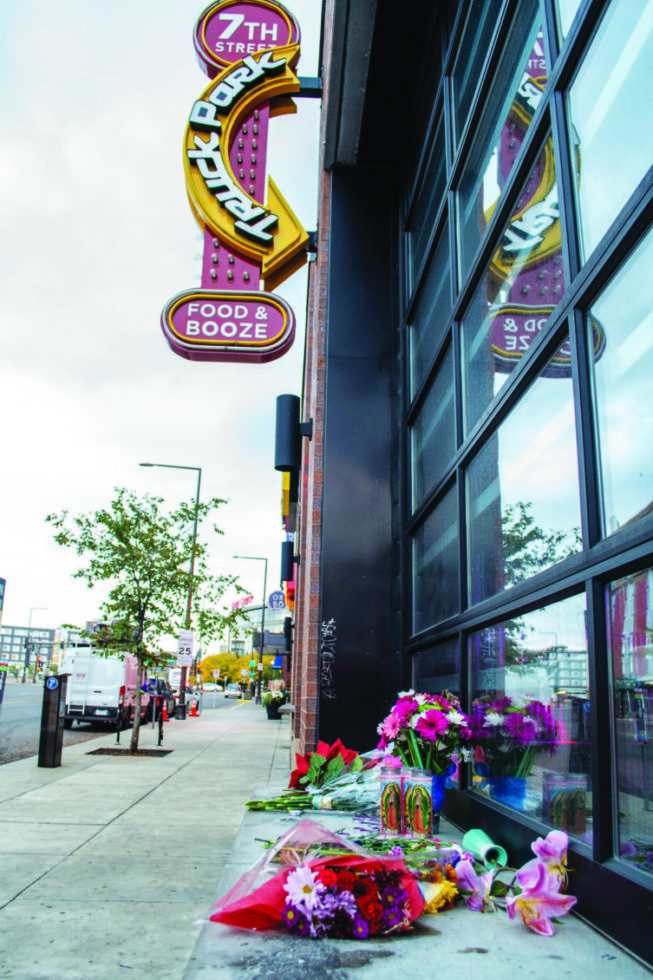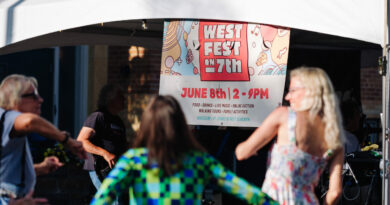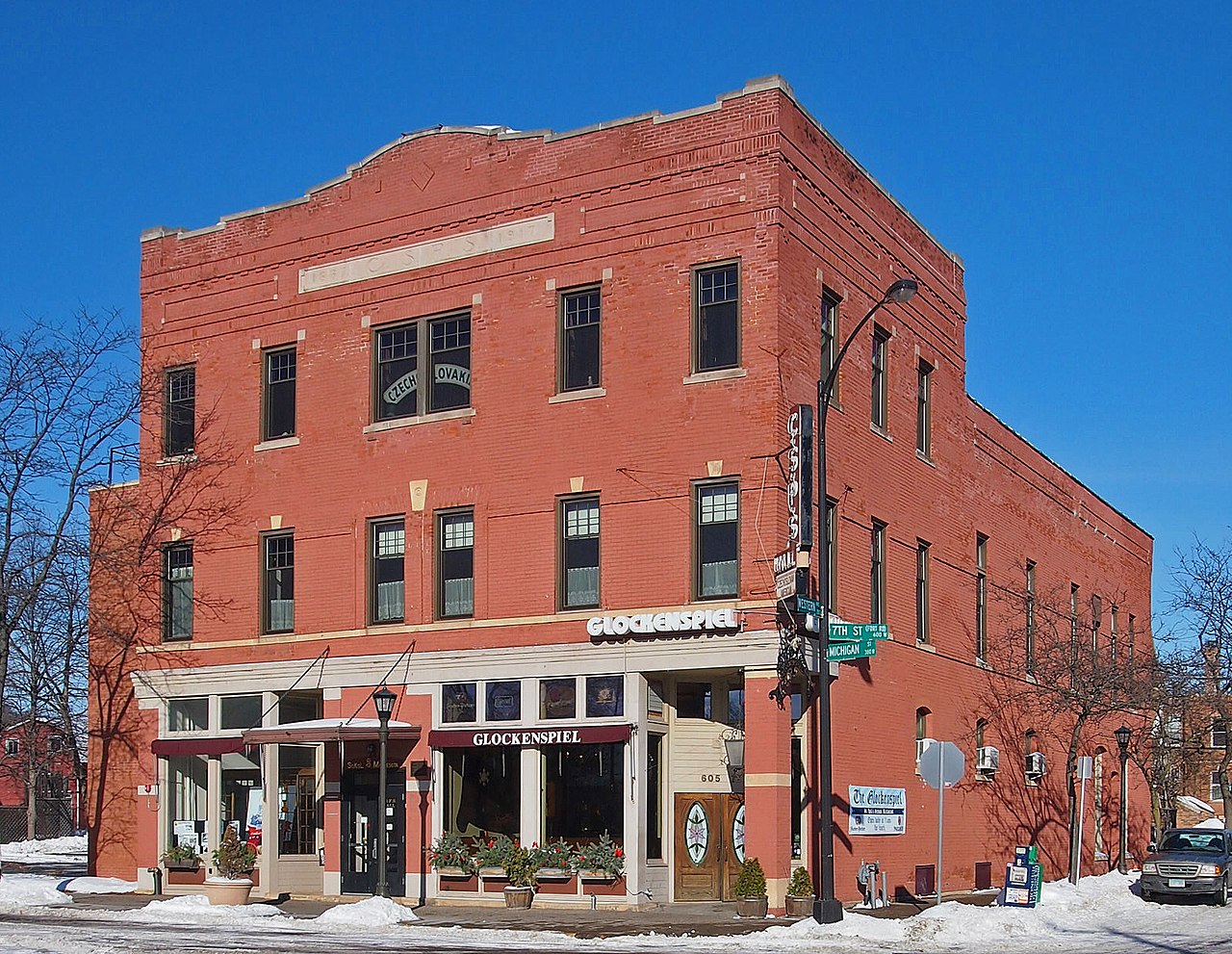Mass Shooting Underscores Public Safety Concerns on West 7th
By Casey Ek
The mass shooting at West Seventh Truck Park that took the life of 27-year-old Marquisha Wiley and injured 15 others in the early hours of Sunday, October 10, shocked the West 7th community.
Terry Lorenzo Brown, 33, of St. Paul, has been charged with one count of second-degree murder and 11 counts of attempted second-degree murder. Devondre Trevon Phillips, 29, of Las Vegas, has been charged with 12 counts of attempted second-degree murder. Both men have a history of violent crime and were not supposed to be in possession of firearms, police said.
At an impromptu Fort Road Federation meeting called in response to the shooting, West 7th neighbors voiced their dissatisfaction for what they described as elected officials’ lack of action on public safety concerns in the area, which have been mounting since early last year.
In early September, the St. Paul Downtown Alliance reported a five-year low in crime. Their analysis showed that crime in the area at the end of August was 23% lower than last year and 10% lower than the five-year average. But for the St. Paul Police Department and some West End residents, these numbers don’t paint a complete picture.
St. Paul Police Senior Commander Jeremy Ellison who oversees the West 7th area attended the public safety meeting. He said that while many crime statistics seem promising for the neighborhood, celebration may not yet be in order.
“There’s a difference between data and the perception of safety,” Ellison said to the virtual attendees at the Fort Road Federation meeting.
Police data show that many crimes are, in fact, on a rise. Through Sept. 30 police responded to 1,769 reports of shots fired compared to last year’s 1,719 to date. Homicides, at 32 to date, are up from last year’s 26. The number of people shot to date was 202, up from 168 last year and 124 in 2019.
“Every single number you talk about is a human being,” Ellison said, voicing his frustration over what he described as the “revolving door” of criminal justice, the process by which violent offenders are arrested and later released only to commit additional violent crimes.
Ellison also noted the steadily increasing presence of guns at crime scenes his officers are encountering.
Anne LeDuc with Moms Demand Action, a nonprofit with a local chapter aimed at ending gun violence, said her group will continue applying pressure on elected officials, particularly at the state and county levels, to enact change that would curb gun violence.
“We are very sad that the Truck Park shooting is another chance to mobilize,” LeDuc said. “We would have liked to have seen more of a response to this point.”
Local restaurateur Brian Ingram, who operates Hope Breakfast Bar has been frustrated by the message that crime is down in the West 7th area after being robbed four times this year. He said he is holding off on making a deal for a space that would house a new restaurant in the neighborhood until crime declines.
“We don’t want to hear about what’s going to happen a year from now or two years,” Ingram said at the Federation meeting, directing his message to City Councilwoman Rebecca Noecker, whose ward includes the West 7th and downtown. “This is affecting jobs right here, right now.”
This is a sentiment shared by Securian Financial Group CEO Christopher Hilger, who sent a letter to Mayor Melvin Carter imploring the mayor to take “immediate and bold action to address the crisis at hand.”
Noecker said she understands neighbors’ fears and frustrations with regards to the recent shootings and mounting tensions in the neighborhood, but she feels promise from the city’s overall trajectory.
In spite of the more pointed police analysis quoted above, Noecker told the Community Reporter she believes St. Paul is still a safe city, citing the Downtown Alliance’s statistics. Noecker also voiced her support for Mayor Carter’s Community-First Public Safety plan, which seeks to partner with local organizations, gather regular on-the-ground data and deploys community ambassadors in hopes of lowering crime, among other measures, but she also supports adding a second police academy to next year’s budget.
The mass shooting comes as tensions in the neighborhood surrounding the placement of the Freedom House homeless day shelter, located at 296 W. 7th St., are high. The shootings were entirely separate from the Freedom House and its clients, Noecker was sure to clarify at the Federation meeting, but many in the neighborhood see the events as intertwined.
During public questions and answers segment at the meeting, several community members brought up the shelter, which opened due to an emergency need brought on by the COVID-19 pandemic. In response to the comments, Molly Jalma, who serves as the executive director of the Freedom House’s parent organization, Listening House, noted that people who are unhoused are disproportionately the victims of violent crimes. The difficulty of providing care to those most in need, Jalma said, is compounded by pressure from neighbors.
“We have not been welcome. It is not a comfortable place to welcome people,” Jalma said.
Federation meeting attendees pointed to Ramsey County as the governing body most able intervene on West 7th. When asked about the actions the county will take to improve safety, County Commissioner Rafael Ortega, who represents West 7th, said it will take a collaborative effort from all levels of government. He added that he has been working with his colleagues in the county since July to find a space that could provide additional resources to St. Paul’s unhoused in the hopes of alleviating tensions in the West End.
“The hope is that eventually there won’t be a need for the Freedom House,” Ortega said.
A recent zoning proposal that would allow homeless day shelters like the Freedom House to operate in more parts of the city made its way to the St. Paul City Council and was laid over for final adoption on Nov. 3 after this issue went to press.
Passing of the more flexible zoning ordinance, Jalma said, will give her organization the freedom to reach more easily those in need.
“Help us get this zoning ordinance through,” Jalma said. “People have to have a place to go.”




